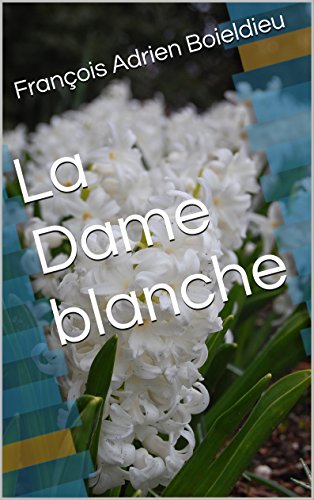Background
Boieldieu was born in Rouen December 16, 1775.



(DIKSON. Jen avais un du plus haut grade, Car cétait m...)
DIKSON. Jen avais un du plus haut grade, Car cétait monsieur le shérif ; Mais voilà quil tombe malade, Et juste au moment décisif. TOUS. Comment remplacer un shérif ? JENNY. Je veux un parrain dimportance, Qui porte bonheur à mon fils.
http://www.amazon.com/gp/product/B01AYOAMAO/?tag=2022091-20
Boieldieu was born in Rouen December 16, 1775.
He received a rudimentary musical education from the organist of Rouen cathedral and at age 18 had considerable local success with La Fille coupable, an opéracomique with libretto by his father.
Two years later the success of a second work prompted him to try his fortune in Paris, where his gifts won him the friendship of many musicians. These included Luigi Cherubini, who is said to have rebuked him for the success of his Le Calife de Bagdad (1800), which Cherubini thought was undeserved, and to have put Boieldieu through a course of further musical studies, although he was already a professor at the Paris Conservatoire. Ma Tante Aurore (1803) again delighted the Parisian public, and in the same year Boieldieu was offered the post of conductor at the Imperial Opera in St. Petersburg. Accepting, he remained in Russia eight years, but few of his compositions of that period have survived, with the exception of the popular Les Voitures versées (1808). Back in Paris he consolidated his position with Jean de Paris (1812)--one of his best works--Le Nouveau Seigneur de Village (1813), and Le Petit Chaperon rouge (1818). In 1817 Boieldieu succeeded Etienne Méhul as professor of composition at the Conservatoire, and his activity as a composer considerably diminished. In 1825, however, his La Dame blanche proved a major success, partly due to the reaction against Rossini's Italian operas and partly to the simple sweetness of its melodies (some of them originally Scots airs) and the fashionable interest of the libretto, which the dramatist Augustin Scribe had constructed from Sir Walter Scott's The Monastery and Guy Mannering. Boieldieu never again succeeded in pleasing the Parisian public, for whom Daniel Auber and then Giacomo Meyerbeer were the new gods, and his last years were shadowed by money troubles and by the pulmonary disease which it seems he had contracted in Russia. He died at Jarcy on October 8, 1834.
he is mist remembered for his masterpiece, La dame blanche (revived in the Salle Favart in 1997 and recorded by the conductor Marc Minkowski). Unusual for the time, La dame blanche was based on episodes from two novels by Walter Scott. The libretto by Eugène Scribe is built around the theme of the long lost child fortunately recognized at a moment of peril. The style of the opera influenced Lucia di Lammermoor, I puritani and La jolie fille de Perth. La dame blanche was one of the first attempts to introduce the fantastic into opera.
( Digital Sheet Music of Calife de Bagdad - Piano Score ...)
( Digital Sheet Music of Jean de Paris - Violin Composed...)
(Sheet music for clarinet.)
(DIKSON. Jen avais un du plus haut grade, Car cétait m...)
He was a freemason, initiated at the Parisian lodge Les Arts et l'Amitié ('Arts and Friendship') – belonging to the Grand Orient of France, – as well as having been a member of the lodge 'Palestine' (in St Petersburg), and an honorary member of the lodge 'Les Amis Réunis' ('Friends Re-united'), also in St Petersburg.
